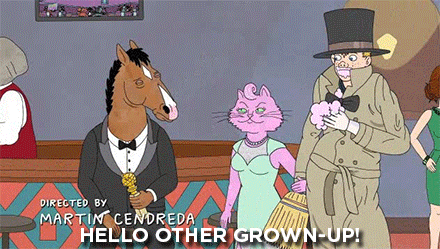Redditism 1: “It’s the internet. You are allowed to swear.” 
I hate when some very grown-ass adult says that because someone didn’t cuss enough for their taste. I swear all the time in my posts here but I still find that shit really, really tryhard and it seems more immature than not saying the naughty word to me.

Redditism 2: Ending a rebuke with a question mark when it’s not a question to make it sound extra snippy.
I’ve heard this being compared to a “vocal fry” and maybe it is, and coming from CA, vocal fries were often said out loud as a form of subtle hostility toward people perceived as lessers, such as retail and restaurant workers. If you need an example of what I’m talking about, it usually goes something like this:
Poster: “I think (opinion).” 
Redditism enjoyer: “You’re wrong?” 
Redditism 3: “Do you need help? Who hurt you? Help is available if you need it, buddy!” 
This one is the worst one I can think of right now because it contaminates even the very possibility of showing sincere care and concern for someone else. It comes loaded with the implication that the person that was “hurt” or “needs help” is fundamentally wrong and should shut up. Fuck that ableist shit, forever. 


A reference to something is not a joke. Monty Python et al isn’t funny outside of context.
Amber
I dream of a society where I would be gulliotined as a poster
Eh, I think in-jokes are pretty normal in most communities, and most in-jokes aren’t that funny, they just exist to strengthen a social fabric. The content of specific in-jokes can absolutely suck though.
UlyssesT calling out my Australian rise (apparently this is called a high rising terminal, or HRT, an acronym that would not be confusing on hexbo). I think it’s more of a “I’m not married to this sentence, please don’t kneecap me over it”, but 90% of Australian communication is either that or thinly veiled barbs asserting your social position.
I think if I heard such a thing being said by people in casual non-hostile conversation enough I’d be fine with it. I’m actually fine with “valley girl” talk as it was in CA, even, but when the fry was used for deliberate hostile condescension (more common in my old area than “valley girl” was), I learned to hate that.
Fry and HRT are different things, fry is the low register “croak” that is viewed as negative if girls and young women do it, but positive if older men do it.
HRT comes off as someone saying something but they’re not confident about it and are groping around for some sort of approval or backup (for better or worse)
I hated it when older men did it at me, especially when I was toiling for minimum wage and they were venting their divorce dad frustrations at me.
I find it kind of attractive every which way, but also yes
It might be a context thing for me, like if I was thrown from my bed and tormented every night by someone wearing a cool hat.
Some people reckon HRT (or AQI as below) is exactly that
That scans
obvs with all these language and culture things, nothing is one specific thing
could we get some examples plz
So, here, there’s a constant jockeying for clout, you can watch a group of guys reinforce their social structure. An interaction might go like this:
Guy 1: I’m interested in topic X, it is new to me but I find it enriching and I hope you do too Guys 2-5: This is actually terrible, and you’re an idiot for thinking this might be good and that we’d enjoy it. And this happens almost constantly regardless of whether the group actually goes with topic X as an activity.
It’s an almost constant stream of belittlement and humiliation from all parties, regardless of whether there is any camaraderie or friendship. It is really exhausting, but I’ve noticed I’ve reflexively done it.
Thank you for the clear explanation, this is something I have observed too. Very antisocial culture especially amongst men.
I’m sure I could think of a specific example, but my brain is fried
Amber.
Song lyric comment chains fall under this category for me, too.